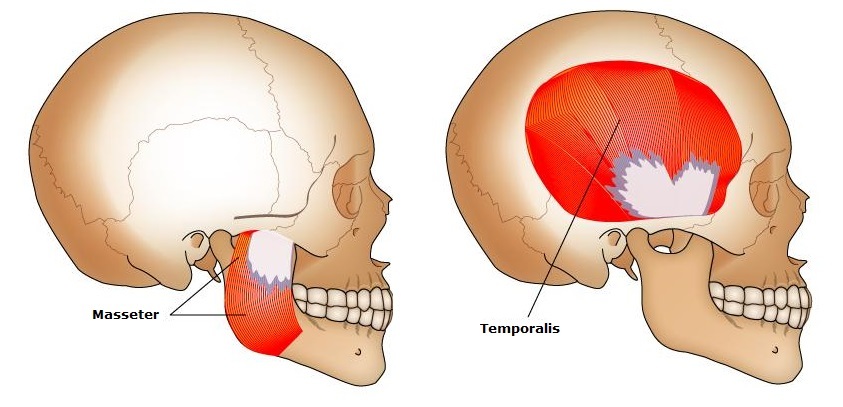The jaws house the teeth.
So it makes sense that inadequate jaw development means there is not enough space to house all the teeth. Crowding, overbites, crossbites and underbites are all signs of underdeveloped jaws and mouth breathing.
So what’s wrong with breathing through your mouth?
I’m glad you asked!! Let me piece the puzzle together for you.
First let’s look at why one would breathe through their mouth?
Mouth breathing usually occurs because there is a blockage in the nasal airways. This may be:
– Deviated nasal septum
– Enlarged adenoids or tonsils (Did you have recurrent tonsillitis as a child?)
– Inflamed sinuses
So a blocked nose forces you to breathe through your mouth. This actually compounds the issue as now you breathe in dirty, unfiltered air which further inflames and enlarges the adenoids and tonsillitis.
Ever wondered why children get recurrent tonsillitis or recurrent enlarged adenoids?
But there are other serious implications:
- Overbreathing
- Mouthbreathers have less control over the volume of air they breathe out. So they exhale too much CO2 (hyperventilation) which reduces the CO2 levels in your system.
- Now, our diaphragm contracts based on CO2 levels so if there is less CO2 in our system, then it won’t contract as much. This results in the use of our accessory respiratory muscles for breathing. End result: inefficient breathing. The lungs remain underutilised.
- Backwards growth pattern for the upper and lower jaw
- With the mouth remaining open all the time, the lower jaw (mandible) grows downwards and backwards. This keeps the tongue away from the ideal resting position. The tongue should ideally be resting on the roof of the mouth behind the upper front teeth.
- With the tongue not resting on your palate to expand the upper jaw, you end up with a narrow, high palate, an elongated soft palate (which is the most common cause of obstruction in sleep apnoea) muscle imbalance as the cheek muscles aren’t pushed against by the tongue. It even explains why some people have a gummy smile
- Improper swallowing.
- The tongue doesn’t develop proper function due to its unusual position down and backwards away from the roof of your mouth. As a result, a dysfunctional swallowing pattern emerges. Mouthbreathers end up swallowing air (aerophagia). The excess air needs to come out somehow and it regularly comes back out through the mouth. This can explain some cases of reflux in children and adolescence.
- Nitric oxide.
- Airflow through the nasal passages results in mechanical cleaning by the cilia that line the nose as well as the release of nitric oxide from the paranasal sinuses. The nitric oxide is antibacterial, antifungal, antiviral. It also increases oxygen uptake by lungs. The nasal airways prepare air for uptake into lungs. They mechanically and chemically clean, filter and humidify the air.
- Bruxism.
- Furthermore, the retrognathic (backwards) growth pattern of the mandible also positions the tongue back against the airway – a reason why the tongue is the second most common obstruction in sleep apnoea. Bruxism or night-time grinding in many cases is actually a compensatory airway protection mechanism. As your body realises that there is upper airway resistance due to an obstruction from the tongue, it activates the clenching muscles, the masseters and temporalis muscles, to bring the mandible and therefore the tongue forward and away from the airway. This is why sometimes bruxers wake up with headaches and soreness on the sides of the head.

Now you may wonder what this all means in the long run?
Well, with the inadequate development of the anatomy, mouthbreathers are at a very high risk of sleep-disordered breathing like sleep apnoea, snoring and UARS. Sleep apnoea, if left untreated, can shave 10-15 years off your life and also increase your risk of comorbities such as cardiovascular disease, stroke, Alzheimer’s, bowel issues, disruption to reproductive system and cancer! Read more about sleep here.
It’s a lot to take in but it’s a serious topic. I guarantee that you will know someone that would find this relevant for either themselves or a loved one. I encourage you to share this amongst your social networks. There is not enough awareness about this in society and you spreading awareness could change the life of someone.
Best news is this: at The Dental Station, we offer corrective treatments for children AND adults (even if full bone growth and maturation is complete) to guide the jaws back into their correct positions, retrain the tongue and lip muscles to ensure the return of nasal breathing and restore one’s compromised airway back to it’s ideal volume. We have a multidisciplinary approach in conjunction with various doctors and clinicians to ensure you receive a tailored treatment that suits you best.
If you feel you may benefit from this or would simply like to know more, please don’t hesitate to book in for a consultation with Dr Jalal here.

